Beef is renowned for being a versatile and delicious ingredient. Let’s explore the calories in beef, its nutritional benefits, and some tips on incorporating it into your diet.
1. How Many Calories Are in 100 Grams of Beef?
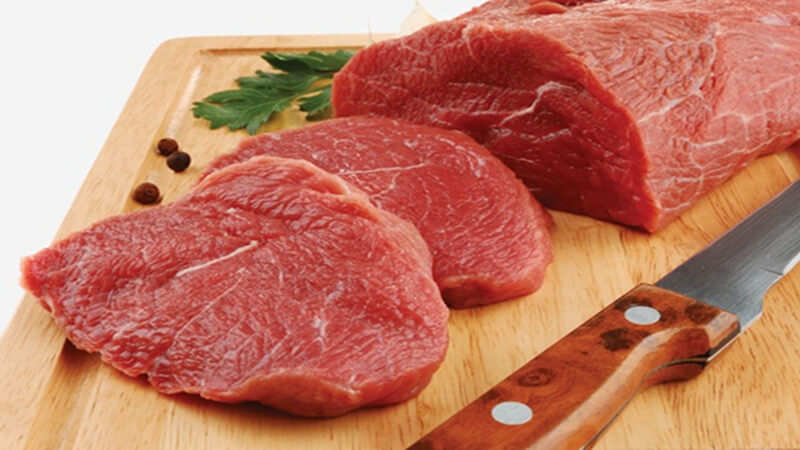 Calories in 100g of Beef
Calories in 100g of Beef
Beef is a nutrient-dense food, offering approximately 250 calories per 100-gram serving. The calorie count can vary depending on the cut of beef and the method of preparation. For example, a 100-gram serving of raw ground beef provides 267 calories, while the same amount of cooked ground beef has 400 calories.
Different cuts of beef will have varying calorie contents. For instance, 100 grams of sirloin provides 267 calories, while the same amount of chuck eye roast contains 471 calories. The cooking method also plays a role, with grilled beef carrying more calories than boiled or steamed beef.
In general, the more intricate the preparation and the greater the number of ingredients, the higher the calorie count.
2. Nutritional Profile of Beef
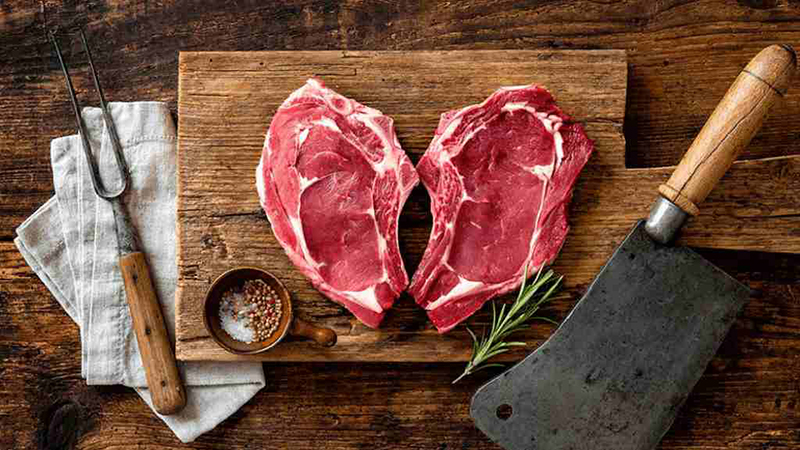 Nutritional Value of Beef
Nutritional Value of Beef
Beef boasts an impressive nutritional profile:
Protein: Beef is an excellent source of complete protein, providing all the essential amino acids that our bodies cannot produce on their own. These amino acids are crucial for growth and development. The specific amino acid composition varies depending on the cut of beef.
Fat: Beef contains varying amounts of fat, mostly found in the marbling or the visible fat within the meat. While fat adds flavor and juiciness to the meat, it also significantly increases the calorie count. However, the fat from ruminant animals like cattle and sheep differs from other animal fats as it contains trans fats, also known as ruminant trans fats.
Creatine: Beef is a good source of creatine, a compound that plays a vital role in energy production and muscle health.
3. Benefits of Eating Beef
According to Doctor Nguyen Thuong Hanh, a specialist in internal medicine at the Oncology Hospital, beef offers several health benefits:
Muscle Growth and Repair:
 Beef for Muscle Growth
Beef for Muscle Growth
Beef, especially the shank cut, is rich in ammonia, which is known to promote muscle growth and overall health.
Energy Boost:
 Beef for Energy
Beef for Energy
Beef is a good source of vitamin B12, which accelerates the metabolism of amino acids, providing a quick energy boost for high-intensity activities.
Weight Loss:
 Beef for Weight Loss
Beef for Weight Loss
Beef helps tone muscles, boost immunity, and provide energy to cells. Additionally, its content of unsaturated fats can aid in weight loss by stabilizing cholesterol levels while still providing essential energy.
Antioxidant Properties:
 Beef’s Antioxidant Benefits
Beef’s Antioxidant Benefits
Beef is a good source of protein and beneficial oils, including synthetic linoleic acid, which is crucial for muscle maintenance and development. It also possesses antioxidant properties, making it ideal for those who engage in sports that cause tissue damage.
From a traditional Chinese medicine perspective, beef is considered sweet and neutral in nature. It is believed to tonify the spleen and stomach, strengthen the body, nourish the blood, and promote strong tendons and bones. It is recommended for those with spleen and stomach deficiencies, characterized by symptoms such as weight loss, poor appetite, abdominal distension, and chronic fatigue.
4. Does Eating Beef Cause Weight Gain?
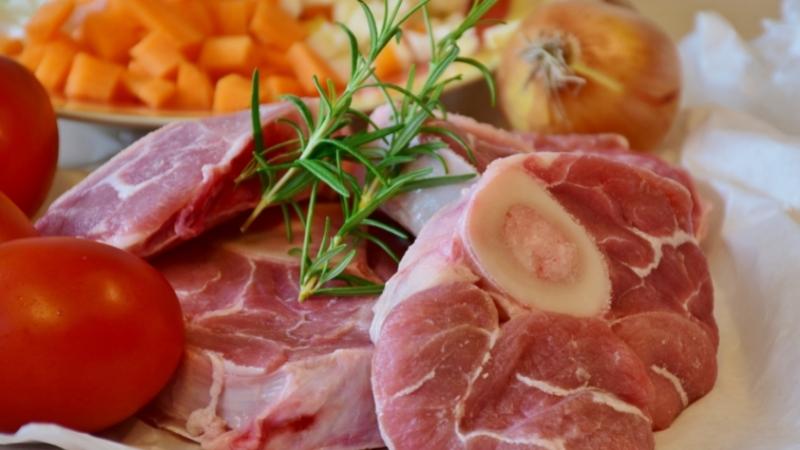 Does Beef Cause Weight Gain?
Does Beef Cause Weight Gain?
A 100-gram serving of beef typically contains approximately 26 grams of protein, 15 grams of lipid, and 250 calories. While it is rich in omega-3 fatty acids, beef does not contribute to weight gain when consumed in moderation. In fact, it can aid in burning excess fat and building muscle when incorporated into a balanced diet.
However, it’s important to note that the method of preparation can impact weight gain. Cooking methods such as frying, grilling, or stir-frying, especially when combined with other high-calorie ingredients, can lead to an overall higher calorie intake.
5. Is It Healthy to Eat Beef Regularly?
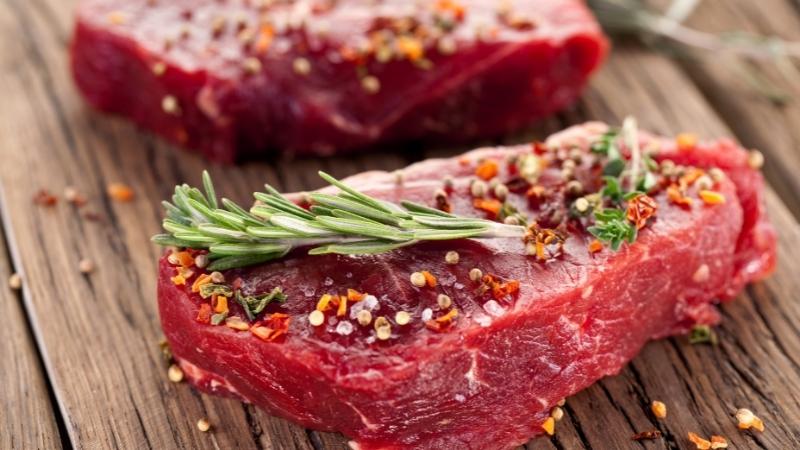 Is Eating Beef Regularly Healthy?
Is Eating Beef Regularly Healthy?
Beef is a nutrient-rich food, offering not only high-quality protein but also essential vitamins and minerals. It is a good source of zinc, selenium, phosphorus, and various B vitamins, including vitamin B12, which is crucial for immune function and red blood cell formation. The iron content in beef helps replenish blood cells and ensures adequate oxygen supply to the body’s cells.
The linoleic acid in beef also plays a role in muscle maintenance. However, it’s important to consume beef in moderation. Experts recommend limiting your intake to 300-500 grams per week.
As with all foods, moderation is key. Individuals with certain health conditions may need to be cautious about their beef consumption:
- Skin Disorders: Those with skin conditions may need to avoid or limit their intake.
- Post-Appendicitis Surgery: It is generally recommended to avoid beef immediately after appendicitis surgery.
- Kidney Stones: Beef contains purines, which can increase the risk of kidney stone formation.
- Joint Inflammation: Some individuals with joint inflammation may find that limiting their beef intake helps manage their condition.
- Diabetes, Hypertension, and High Cholesterol: Beef is rich in protein and fat, so those with these conditions should monitor their intake and consult their healthcare provider for personalized advice.
6. How to Eat Beef for Weight Loss
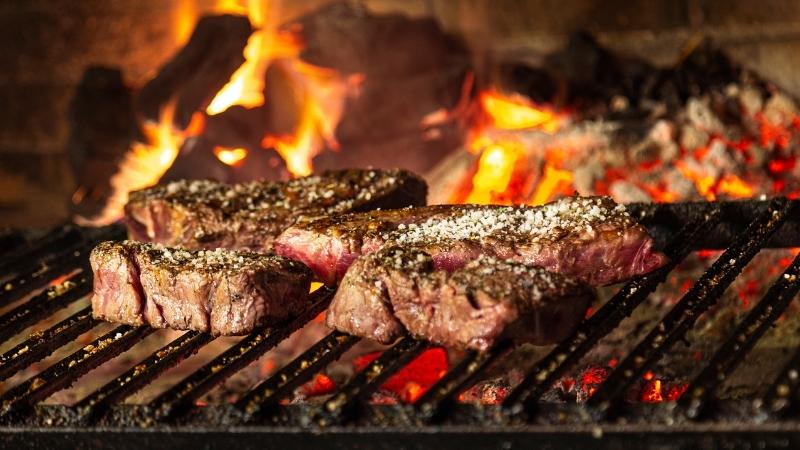 Eating Beef for Weight Loss
Eating Beef for Weight Loss
Beef can be a part of a weight loss diet when consumed in moderation and prepared using healthy cooking methods like steaming or boiling. Aim for 300-500 grams of beef per week to maintain a balanced diet while reaping the nutritional benefits of beef during weight loss.
7. When Is the Best Time to Eat Beef?
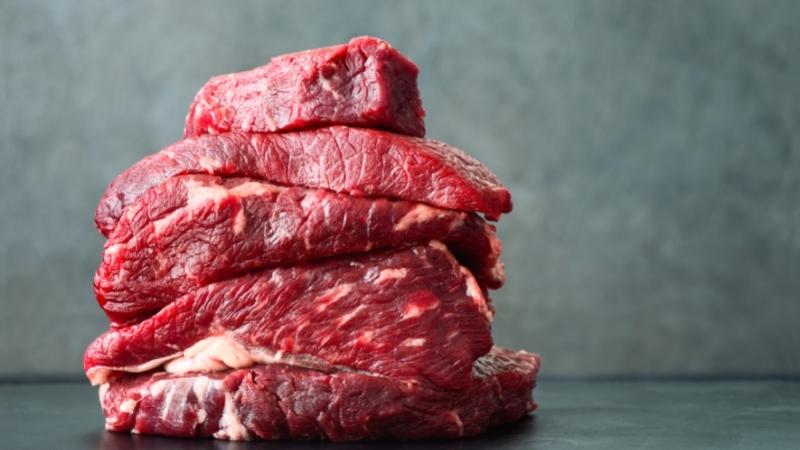 Best Time to Eat Beef
Best Time to Eat Beef
According to PGS.TS. Nguyen Duy Thinh, from the Faculty of Food Technology at Hanoi University of Science and Technology, beef is best consumed during the morning and noon hours. Due to its high protein content, eating beef at night can lead to digestive issues such as bloating and acid reflux.
8. Delicious Beef Dishes
Pho Bo Tai Gau (Vietnamese Beef Noodle Soup with Rare Steak and Brisket)
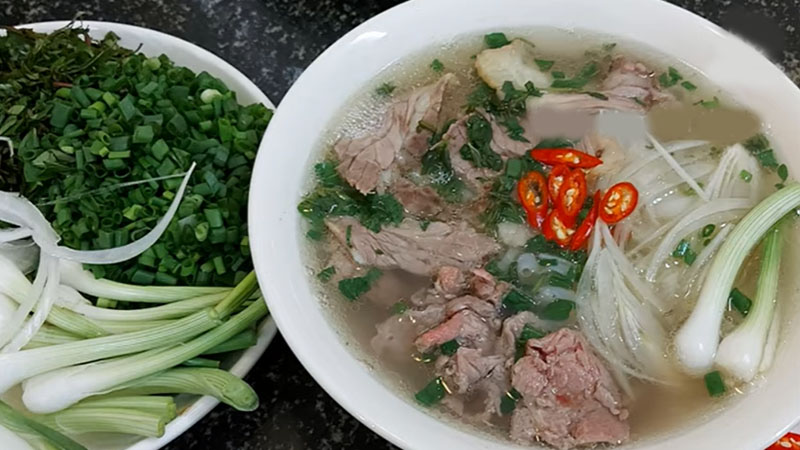 Pho Bo Tai Gau
Pho Bo Tai Gau
This iconic Vietnamese dish is a harmonious blend of tender rare steak, juicy brisket, and flavorful broth. It’s a light yet satisfying meal that’s easy to prepare and loved by many.
Related:
Oxtail and Lotus Root Soup
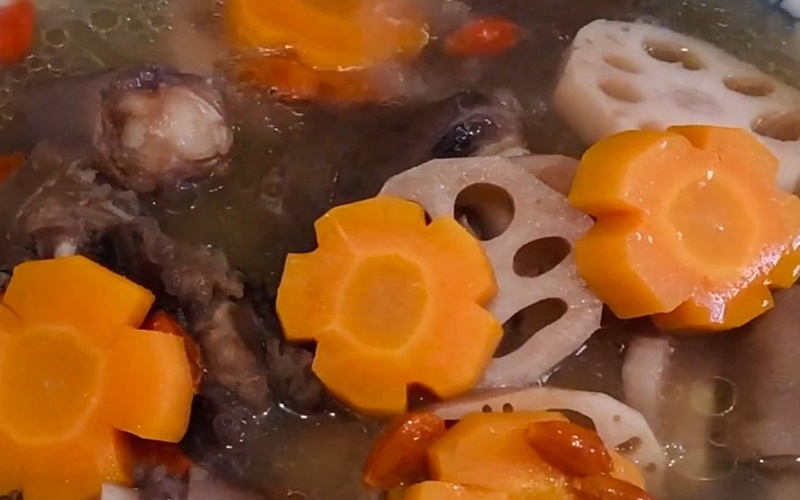 Oxtail and Lotus Root Soup
Oxtail and Lotus Root Soup
This unique soup combines the richness of oxtail with the sweetness of lotus root. Slow-cooked until tender, the oxtail becomes soft and gelatinous, while the lotus root absorbs the flavorful broth.
Related:
Cheese-Stuffed Beef Rolls
 Cheese-Stuffed Beef Rolls
Cheese-Stuffed Beef Rolls
For a fun twist on traditional beef dishes, try these cheese-stuffed beef rolls. They’re easy to make and deliver a mouthwatering combination of juicy beef and melted cheese.
Related:
9. Precautions When Eating Beef
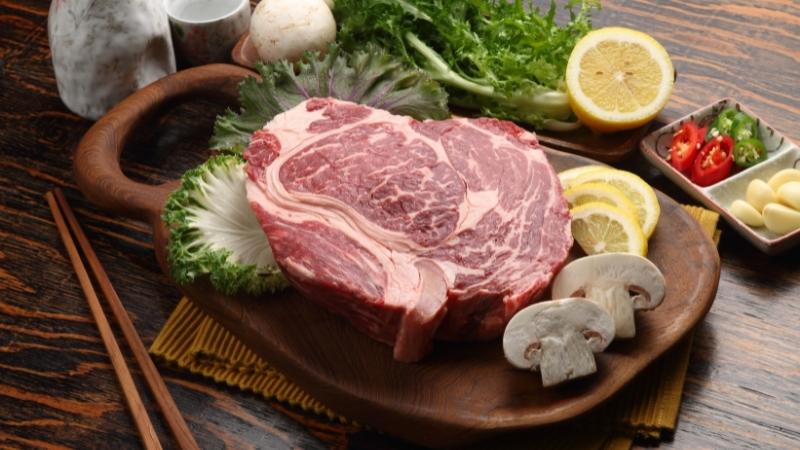 Precautions When Eating Beef
Precautions When Eating Beef
- Moderation is key—limit your beef intake to no more than 500 grams per week to avoid raising cholesterol levels.
- Ensure thorough cooking to prevent parasitic infections and the risk of foodborne illnesses. Avoid or limit consumption of beef offal due to the higher risk of bacterial and parasitic contamination.
- Avoid drinking tea after eating beef as the acid tani in tea can interfere with mineral absorption and cause constipation by reducing intestinal motility and irritating the intestinal mucosa.
- Individuals with high blood pressure, heart disease, high blood fat, kidney stones, or gout should refrain from consuming beef.
10. Frequently Asked Questions About Beef
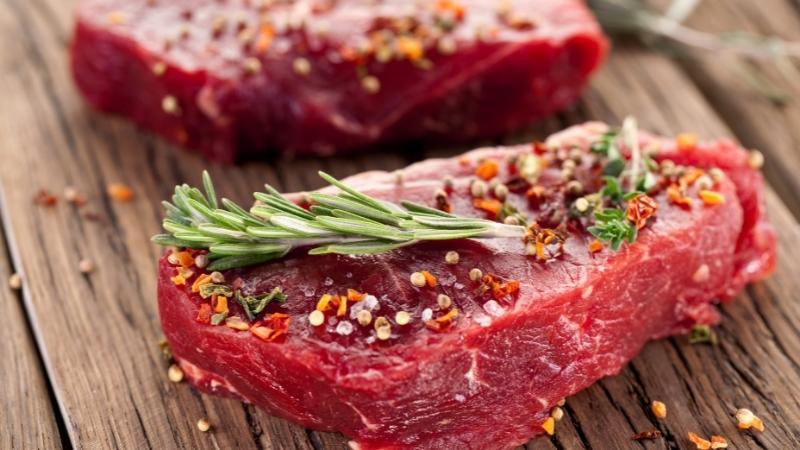 FAQs About Beef
FAQs About Beef
Does eating beef cause keloid scars?
Beef is rich in protein, which is essential for tissue repair and regeneration. However, excessive protein intake during the wound healing process may increase the risk of keloid scar formation.
Can people with gout eat beef?
Beef, as a red meat, contains high levels of protein, which can increase uric acid levels in the blood. Elevated uric acid levels can lead to gout, a form of arthritis. However, complete avoidance of beef is not necessary. Consult a healthcare professional for personalized advice on incorporating beef into your diet while managing gout.
has brought you valuable information about beef. If you’re a beef enthusiast, be sure to bookmark this article for future reference.
Source: United States
































